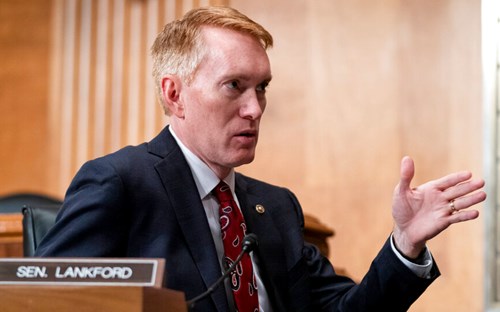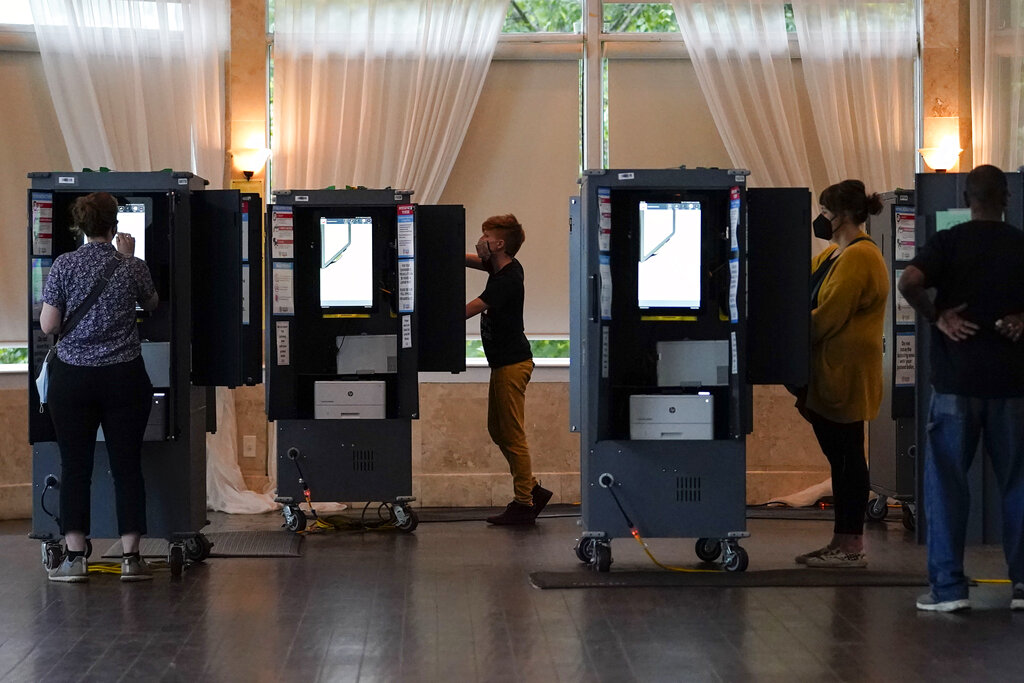As Democrats and Republicans on Capitol Hill fight to come together on a border bill, the larger question may be whether Americans still embrace federalism. The concept of federalism – a two-tiered system of a strong national government and less strong state government still with unique rights and authority – is on the table as millions of foreign nationals have poured across open borders and thousands more arrive daily.

"We're seeing a faceoff over the very concept of federalism right here in Texas right now," Mark Meckler, the president and co-founder of the Convention of States project, said on American Family Radio Tuesday. "I think we've reached a point that we've not seen in American history since the Civil War. Some people would argue during the Civil Rights movement, the federal government had a faceoff with the states, but it was limited in scope. Here you have now 26 governors who have spoken aggressively against the federal government's actions on our southern border - and they're standing together."
Thirteen of those governors, all Republican Party members, stood beside another Republican, Texas Gov. Greg Abbott Sunday at Eagle Pass, Texas, a small community that has become ground zero of the border battle.
Pres. Biden blames Trump for border bill snubReaction from Robert Knight, columnist for The Washington Times:"President Biden has no business criticizing President Trump in any way as far as the border security. Trump had secured the border better than any president in recent years and Biden undid it all." "The only reason the Democrats are showing any interest in securing the border is that it's an election year and they realize that millions of Americans are upset that the border is unsecure by design." |
Abbott has long accused President Joe Biden of failing to uphold America's laws. So, the governor has taken border security into his own hands with razor wire, floating barriers and other methods while citing his state's right of self-defense as defined in the Constitution.
The Biden administration has filed a lawsuit in response, and that litigation is playing out.
Meanwhile, governors from 25 states – all Republicans – have signed a letter and issued a joint statement supporting Abbott and condemning Biden. Thus far there have been no physical confrontations between state and federal personnel.
"This is a unique point in history where the states are saying, 'No, you've gone too far. We're not going to allow this anymore' – and so now the question is, how do you restore federalism in a country that seems to be losing the idea of federalism?" Meckler asked show host Jenna Ellis.
Senate bill is DOA in the House, Johnson promises
While there have been no physical clashes, there's been no shortage of verbal sparring on Capitol Hill. After months of ignoring a border bill passed by the U.S. House in spring, the Senate has unveiled an $18.8 million compromise effort that House Speaker Mike Johnson says has no chance in his chamber.
"This immigration bill is dead on arrival in the House," Johnson wrote on X Monday. "We will not pass immigration legislation that further incentivizes illegal immigration, does not reform asylum and parole in a meaningful way, and empowers President Biden and his cabinet, the architects of this catastrophe."
Sen. James Lankford of Oklahoma, who led the Republican effort on the Senate bill and has been its spokesman, said on Washington Watch Monday that the bill includes "major" policy changes, specifically to the asylum process.
 "Most people, when they actually come across the border, will be turned around immediately – a faster process for the screening with fewer appeals," he explained. "So, you can't just do endless appeals and stay in the country forever. It takes away the tenure backlog, moves it to weeks or days to actually get to resolution on this. It ends the use of humanitarian parole to just give work permits to people coming into the country. So no longer do you just get a work permit for showing up at the border, you've actually got to go through the full asylum process and everything else on it," Lankford told show host Tony Perkins.
"Most people, when they actually come across the border, will be turned around immediately – a faster process for the screening with fewer appeals," he explained. "So, you can't just do endless appeals and stay in the country forever. It takes away the tenure backlog, moves it to weeks or days to actually get to resolution on this. It ends the use of humanitarian parole to just give work permits to people coming into the country. So no longer do you just get a work permit for showing up at the border, you've actually got to go through the full asylum process and everything else on it," Lankford told show host Tony Perkins.
Lankford said the bill's provision that allows 5,000 crossings per day has been greatly misunderstood. "That's a hundred percent not true," he said.
Instead, he continued, the bill allows 5,000 into the country for the purpose of collecting the individuals and sending them back out – but it only does so for a period of time.
"It doesn't count 5,000 in and then start to deport people. It starts at the very beginning and just deports them all, and it does so for weeks until we can drive the numbers back down. It's targeted to get control of the border again and stop the chaos," Lankford said.
But Republicans in Lankford's own chamber are leery. "I can't support a bill that doesn't secure the border, provides taxpayer-funded lawyers to illegal immigrants, and gives billions to radical open borders groups. I'm a no," Sen. Steve Daines (R-Montana) wrote on X.
Minority Leader Mitch McConnell has been less than enthusiastic and somewhat vague about the bill. In a statement, McConnell thanked Lankford for his work then said the Senate must "carefully consider the opportunity in front of us and prepare to act."
Too much compromise in this bill, Bauer says
Gary Bauer of American Values says Lankford gave away too much. "We've gone through this five or six times. It's time we wake up. This deal is full of problems that will make the situation even worse in the months and years ahead," he told AFN.
Bauer says some senators long for a time when members crossed the aisle and worked together but that the chamber's current atmosphere does not allow for such. Both political parties have moved on from 20 years or so ago, he states.

"There are a lot of Republicans who think that it's time to get back to bipartisanship because we all agree on the major issues. No, we don't," he emphasized.
To the Democrats, according to Bauer, politics is a blood sport – and every bill, every vote, every compromise has one goal: destroy the Republicans. For their part, Bauer says the GOP is a more populist party that is learning how to fight back.
And while Sen. Lankford is open about his Christian faith, Bauer worries the senator may be naïve about who he's fighting.
"I hope that he has not bought into the idea that if you're a Christian, you have to believe in open borders," he shares. "I know there are some people in the progressive Christian movement who claim if you're pro-life, you've got to be pro-unlimited migration into America."
While the parties wrangle, the states have the right to stand strong, Meckler said.
"It's important that we remember our history. The states were intended and are sovereign in their own spheres. The Constitution granted specifically 17 enumerated powers to the federal government. No more. Everything else is reserved to the states. Today, I think the federal government, through the federal courts, has taken power over 17 million things; so, the question is how do you rebalance that?
"So, federalism acknowledges that if we want to do anything together, we have to make sure we don't try to do everything together, and the Constitution gives us a method to essentially re-separate on a lot of different things. That is Article Five which says if we, the states, don't really like what the federal government's doing, we can call a convention, and we can propose amendments to restrict federal power."














